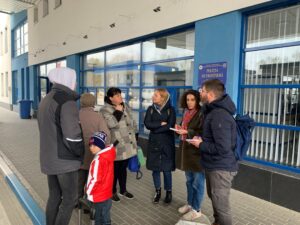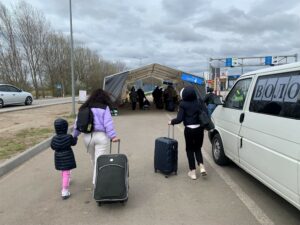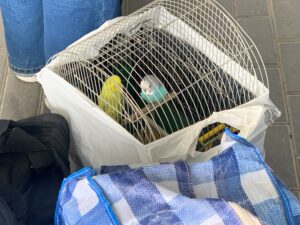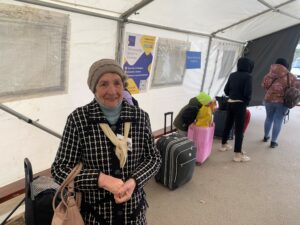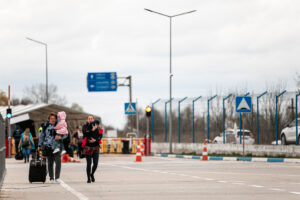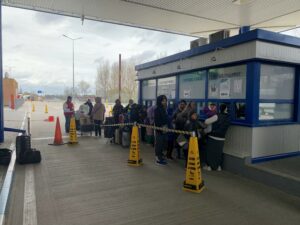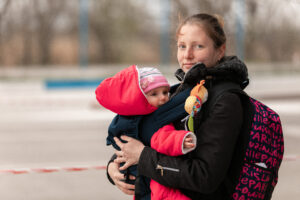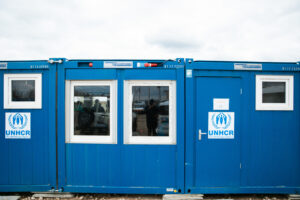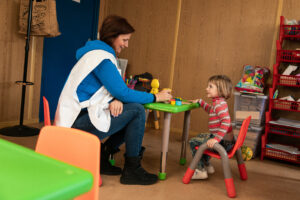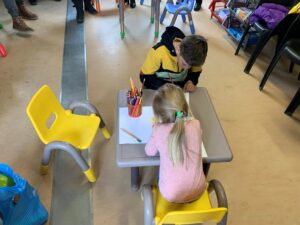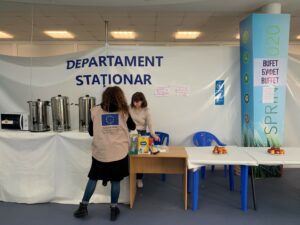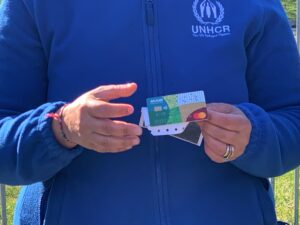
‘Beyond endurance’: Help and useful information for refugees in Moldova
Moldova is often perceived as a transit country for Ukrainians fleeing the war. Indeed, many cross the border and go on to Romania, Italy, or Poland. However, some stay to be closer to home.
It is challenging to call them ‘refugees’, because these people think about going back every day. Some even go back and forth: looking after the elderly, checking on the apartment or house, and picking up the things they need. Those who decide to stay and try to get their lives in order can count on support. Channel 24 visited Moldova and described what Ukrainians encounter when they enter a neighbouring country, and how to get help and stay updated about EU support.
Crossing the border and first decisions
Palanca is the main hub for refugee arrivals. The ‘hottest’ days were at the beginning of the war, when people stood in huge lines, shocked and fearful. Now, the crowds are gone; the buses come mostly from the Odesa or Mykolayiv regions. Still, another nuance often worries Ukrainians.
“The first days and weeks after the war were the most difficult. Every day, there are cases where men of conscription age show up here, at the border. Once they have made it here, they can ask for asylum and we cannot refuse. If they have managed somehow to bypass the checkpoints, we accept them,” explains Ruslan Galushka of EUBAM – the European Union Border Assistance Mission to Moldova and Ukraine.
Several of the families we met came from the town of Ochakiv in the Mykolayiv region. They lived in the same yard before deciding to flee. “We let it all hang out and left,” Yelena says frankly. Out of stress, she jokes to calm down the teenagers around her: “Now they’re going to take us… to America. Let’s go together with the parrots.”
“We left because we were scared. The window panes are gone, we’re being bombed. It’s beyond my endurance. It also affects the children’s psyche,” she admits.
Yelena herself seems to suffer, too. When asked how she feels, she cried and barely uttered, “Well, how can I feel?”
Lyudmila Zinovievna lived in Mykolayiv since 1944. She doesn’t remember the Second World War, because she was a child, but the new misfortune has turned her life upside down. The woman said she tried to persuade her husband to leave from the first day; yet, it took a month and a half before he “gave up” and they went to the Moldovan border. “The evacuation is carried out by a Jewish organisation to which we belong. Ahead is Chisinau and a plane to Israel. But I don’t know where we will live; we are going into unknown,” she shared.
Ukrainians can enter without a travel document. An ID card or ‘internal’ passport is enough. A driver’s licence will also do. Children under 18 need to have a birth certificate, an internal passport or a travel document. Crossing the border by car is possible without a “green card” policy; however, the owners of such cars must buy a policy within the first 24 hours after entering Moldova. Entrance with pets is allowed without veterinary certificates or special passports. Information is available at hotline 080001527 (calls to 112 will be forwarded to the hotline) and the website dopomoga.gov.md.
Temporary shelter and assistance
Palanca is a good place to take a bus to other cities or even countries. It is also where you can start planning your first days after being forced to move.
With the help of international organisations and local volunteers, Blue Dots centres operate near the border. These are hubs where the UN Refugee Agency, UNICEF, other international organisations and government representatives provide information and medical, legal, and psychosocial support. The idea itself originated during the Syrian refugee and migrant crisis in 2015-2016, and such centres operate in Greece, North Macedonia, Serbia, Croatia and Slovenia.
During the first days, a tent city emerged here. Since mid-April, the situation has stabilised, and mostly mothers with children use these hubs to wait during a bus transfer, recuperate, and take their first supply of food or hygiene products.
Amid the mass influx of people, Moldova activated the EU Civil Protection Mechanism on 24 February, asking for assistance to host refugees from Ukraine. Assistance includes medical supplies, medicines, protective gear, as well as ambulances, fire-fighting equipment, power generators, and more.
We walked from the border crossing point in Palanca to Blue Dots with Valentina, who left Odesa with her two children; the elder is 2 years and 10 months old, and the younger is still a seven-month-old infant.
“My husband and dad stayed home. I’m going to Italy through Romania. I have been there as a student. I have an invitation, because I’m a designer and I’m good at drawing. I think safety is more important. This is my second attempt to go. At first, I didn’t dare; I thought Odesa was safe enough. The children don’t understand what’s going on, but they’re frightened,” Valentina says.
We went with her to one of the children’s rooms. There is a psychologist, toys and warmth, which is very important, because the help was deployed in the field, and early spring is not the best time to be outdoors with children. Here you can also find instructions for Ukrainians, basic things for children, hot meals, and psychological help. The latter is essential in a situation where children are under tremendous stress.
“Most people know where they are going; they have at least some kind of plan. Also, people travel in large groups, and underage children mostly travel with adult relatives. Therefore, the situation is under control in terms of safety. Soon the same centres will appear in other points: Cahul, Leuseni, and Skuleni,” Angela Munteanu from the UNICEF office explained.
Emergency response team members also work here. Free buses take refugees to Chisinau and other cities in Moldova or Romania. ACTED staff have been in Palanca, the main border crossing point, since 4 March. They are also distributing SIM cards and collecting whatever is needed for the refugees.
Helpful contacts and first cash assistance
More than 90% of Ukrainians are staying with Moldovan families or renting accommodation. This is what makes the situation in 2022 different from the previous migrant crisis. Still, people continue using the hubs to wait it out, find a place to live, or move on.
One such hub is Moldexpo, a complex of large exhibition buildings. The first rooms for temporary accommodation were installed here, and now they offer a wide range of support: from registering for benefits to finding housing or medical care.
Francesca Bonelli is a representative of the UN Refugee Agency’s emergency assistance team. She used to work in Serbia; now, the management has called her to Moldova, and she moved here in one day to provide assistance. “Today, there are 103 such refugee hubs around the country with a total capacity of more than 9,000 beds,” she says.
Ukrainians and foreigners who were living in Ukraine when the war began can receive monetary assistance. Registration is by appointment only. As of now, registration slots are set only through a referral mechanism from UNHCR’s partners, for which you should use this link. Information is also available here about emerging hubs in other cities.
Later on, refugees are invited to the hub, where they are issued a maib bank card. Local authorities and international organisations have fixed an amount of 2200 Moldovan lei per month per person (about 3500 hryvnia).
The details are that each family member can receive the money; it must be spent in a month, withdrawn or paid by card in a store. It is not known yet exactly how long the support programme will last; to stay updated, follow official announcements.
Money for refugee host families
Although this type of assistance was not available in the early days when Moldovans took in Ukrainians on their own, it is now possible to get a little compensation. The country went through an energy crisis in winter, and now food and utility prices are also going up, so this kind of support is much needed by locals.
This is a one-time payment. The first Moldovan families registered with the World Food Program will be eligible for receiving 3500 lei (about 5600 UAH) from April at Western Union branches.
Local municipalities play a crucial role in registering and verifying the lists of host families. The main condition is that they must host at least two refugees from Ukraine for at least one week. This is a new programme, so Moldovan families need to contact their local authorities.
Author: Olha Konsevych
MOST READ
SEE ALSO
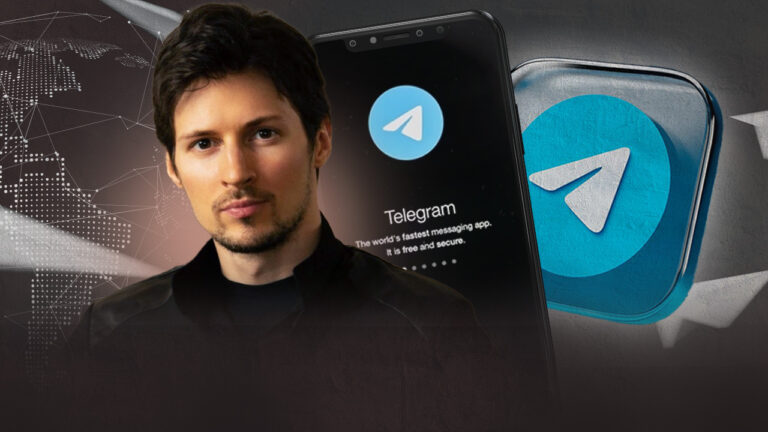
‘The Kremlin has entered the chat’: how to protect your personal data on Telegram and avoid the bait of propaganda

No, time is not on Russia‘s side
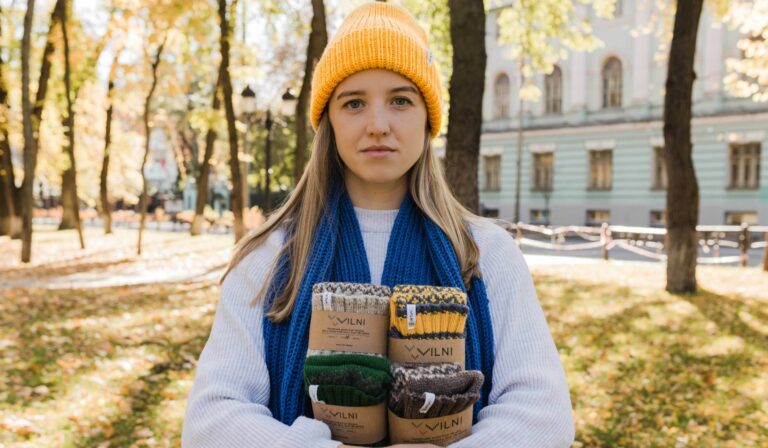
Socks for Peace: how the Vilni project is supporting internally displaced women in Ukraine
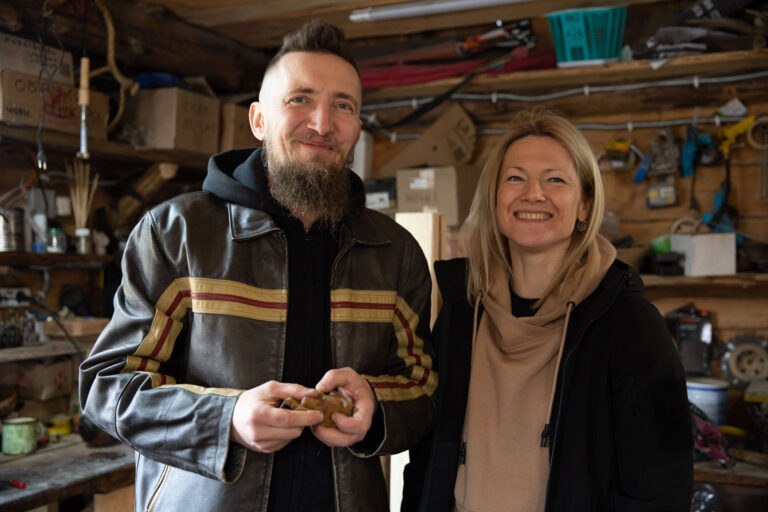
Celebrating traditional Ukrainian cultural identity in Rivne

How to open an art business in Moldova: the experience of Alexandra Mihalaș
More campaign pages:
Interested in the latest news and opportunities?
This website is managed by the EU-funded Regional Communication Programme for the Eastern Neighbourhood ('EU NEIGHBOURS east’), which complements and supports the communication of the Delegations of the European Union in the Eastern partner countries, and works under the guidance of the European Commission’s Directorate-General for Neighbourhood Policy and Enlargement Negotiations, and the European External Action Service. EU NEIGHBOURS east is implemented by a GOPA PACE-led consortium. It is part of the larger Neighbourhood Communication Programme (2020-2024) for the EU's Eastern and Southern Neighbourhood, which also includes 'EU NEIGHBOURS south’ project that runs the EU Neighbours portal.

The information on this site is subject to a Disclaimer and Protection of personal data. © European Union,
